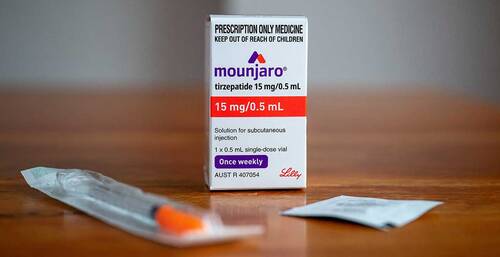For decades, achieving the dream body has been a pursuit often tangled in unrealistic expectations and unsustainable methods. We're told to count calories meticulously, follow strict workout regimens, and sacrifice joy at the altar of discipline. And while nutrition and physical activity remain foundational, the modern wellness world has evolved enter weight loss injections. This innovative approach is not a miracle cure, nor is it a shortcut for laziness. Rather, it's an evidence-based tool helping thousands break through biological barriers, hormonal blocks, and metabolic plateaus that once seemed insurmountable. The dream body? It's not about six-pack abs or size-zero jeans. It’s about confidence, vitality, and the freedom to live without constantly battling your body.
In today’s fast-paced society, where time is scarce and stress is abundant, traditional fitness models are no longer sufficient for everyone. Despite the most valiant efforts, some bodies resist change. Genetics plays a role. So do hormones, age, medical conditions, and mental health. That’s where medically supervised interventions like weight loss injections provide a spark of hope. They don't erase the importance of healthy living they enhance it. They optimize your body’s potential to burn fat, curb hunger, and recalibrate metabolism. More than anything, they level the playing field.
(more…)
 Desperate to shape up, many people swallow the latest pill or potion, jump on the latest diet bandwagon, or try some quick-fix gizmo that guarantees rapid weight loss. Beneath their seductive appeal, these fixes usually lack staying power, leaving us vulnerable to unintended physical and mental consequences that can be frustrating.
Medications like Mounjaro, while effective for specific medical conditions, may not be the best solution for long-term weight management. Imagine having the energy and confidence to take on each new day. By making smart food choices, staying active, and swapping unhealthy habits for healthier ones, you can achieve just that.
(more…)
Desperate to shape up, many people swallow the latest pill or potion, jump on the latest diet bandwagon, or try some quick-fix gizmo that guarantees rapid weight loss. Beneath their seductive appeal, these fixes usually lack staying power, leaving us vulnerable to unintended physical and mental consequences that can be frustrating.
Medications like Mounjaro, while effective for specific medical conditions, may not be the best solution for long-term weight management. Imagine having the energy and confidence to take on each new day. By making smart food choices, staying active, and swapping unhealthy habits for healthier ones, you can achieve just that.
(more…)
Weight loss medications have become such a game-changer. For years, weight loss was all about diet and exercise, which can be a real uphill battle for most folks.
But now, with medications like Mounjaro showing such promising results real progress has been made in the fight against obesity.
Even with a game-changing drug like Mounjaro, there's still a learning curve. And one of the most common questions patients ask is: "Where's the best place to inject this medication?"
What is Mounjaro?
Mounjaro, also known by its generic name Tirzepatide, is a relatively new medication making waves in the weight loss world. It mimics the effects of two naturally occurring hormones in the body: GLP-1 and GIP. These hormones regulate blood sugar levels, appetite, and metabolism. Semaglutide class of medications on the other hand like Ozempic for weight loss, contain a GLP-1 receptor agonist. Mounjaro is actually FDA-approved for treating type 2 diabetes. But it also has an impressive side effect: weight loss. And not just a little bit of weight loss, either. We're talking double-digit percentages here. So, while Mounjaro isn't officially approved for weight loss, many doctors are prescribing it off-label to help patients achieve their weight loss goals. (more…)
Author Interviews, Protein, Weight Research / 28.11.2024
The Impact of Protein on Weight Loss and Appetite Control
Protein is a fundamental nutrient that plays a vital role in weight loss and appetite regulation. Understanding how protein affects these areas can help optimize dietary strategies for better health outcomes. From influencing hunger hormones to boosting metabolism, protein’s role in the body is multifaceted and powerful.
How Protein Influences Appetite
One of protein’s standout benefits is its ability to enhance feelings of fullness, also known as satiety. When you consume protein-rich foods, your body releases appetite-suppressing hormones such as peptide YY and GLP-1, which signal your brain to reduce hunger. In contrast, diets low in protein may leave individuals feeling hungrier, leading to overeating or increased snacking. This is why many weight loss programs emphasize incorporating high-protein meals and snacks to curb cravings and improve adherence to calorie-controlled plans. (more…)
In a world consumed by quick fixes and trendy diets, it can often be challenging to pinpoint a strategy for weight loss that is both effective and enduring. Sustainable weight loss shifts focus from drastic short-term losses to gradual, long-term lifestyle adjustments. These modifications promote weight reduction and overall better health and vitality for numerous individuals in bustling regions like Texas. Sustainable weight management solutions such as Weight Loss Texas offer tailored guidance and support options that accommodate diverse personal health needs. This approach underscores balance and sustainability, ensuring that changes can be permanently woven into daily life.
Understanding Your Baseline
A foundational stage in any effective weight loss plan is clearly understanding your starting point. Determining your Body Mass Index (BMI) and daily caloric requirements equips you with the knowledge to set realistic, personalized goals. Your baseline acts as a living document that can evolve as you progress, adjusting plans to reflect changes in your body composition. Setting attainable short and long-term objectives is paramount to sustaining motivation and seeing tangible results. Resources such as the CDC's guide on BMI provide informative insights on establishing these benchmarks, steering you towards an educated path in your weight loss journey. (more…)
Semaglutide, Weight Research / 19.10.2024
The Rising Popularity of Injectable Weight Loss Medications
In recent years, injectable weight loss medications have surged in popularity, becoming a preferred choice for individuals seeking effective and sustainable weight management solutions. This trend is driven by advancements in medical science, increased awareness of obesity-related health risks, and the convenience offered by online healthcare platforms. Among the various options available, medications like semaglutide and tirzepatide have gained significant attention for their efficacy in promoting weight loss.
Understanding Injectable Weight Loss Medications
Injectable weight loss medications are typically prescribed for individuals struggling with obesity or those who have not achieved desired weight loss results through diet and exercise alone. These medications work by targeting specific hormones and receptors in the body that regulate appetite, metabolism, and fat storage. Unlike oral weight loss pills, injectables often provide more consistent and potent effects, making them a viable option for long-term weight management. (more…)
Surgical Research, Weight Research / 14.10.2024
Weight Loss for Seniors: Safe and Effective Strategies for Staying Fit and Healthy
Maintaining a healthy weight is important at any age, but it becomes even more crucial as we grow older. For seniors, managing weight can help improve overall well-being, reduce the risk of chronic diseases, and increase mobility and independence.
However, weight loss strategies that might work for younger people aren’t always appropriate for older adults. Seniors need safe, effective methods tailored to their unique physical, mental, and nutritional needs.
This article will explore some safe and effective weight loss strategies for seniors, focusing on ways to stay fit and healthy while maintaining energy and strength.
(more…)
Ozempic (semaglutide) is a prescription medication designed to help manage type 2 diabetes. It belongs to a class of drugs called GLP-1 receptor agonists, which work by increasing insulin production, reducing blood sugar levels, and slowing digestion to help improve glucose control. Ozempic has also gained attention for its potential role in weight management, but its primary use is for patients with type 2 diabetes who need help controlling their blood sugar.
 To get the best results from Ozempic, following the correct dosing schedule is critical. A structured approach to dosage allows the body to adjust to the medication, reduces the likelihood of side effects, and ensures that patients achieve optimal blood glucose control over time. Many people also explore options to buy Ozempic from Canada as a way to save on costs while maintaining their treatment regimen
In this article, you will learn about Ozempic dosing, how to follow the dosing schedule, where to inject, what to do if you miss a dose, and more. Read on to find out how you can also save on Ozempic when you order through BuyCanadianInsulin.com.
Editor' note: If you are purchasing Ozempic from Canada, please ensure it is legal where you live and that you are not purchasing a counterfeit product.
(more…)
To get the best results from Ozempic, following the correct dosing schedule is critical. A structured approach to dosage allows the body to adjust to the medication, reduces the likelihood of side effects, and ensures that patients achieve optimal blood glucose control over time. Many people also explore options to buy Ozempic from Canada as a way to save on costs while maintaining their treatment regimen
In this article, you will learn about Ozempic dosing, how to follow the dosing schedule, where to inject, what to do if you miss a dose, and more. Read on to find out how you can also save on Ozempic when you order through BuyCanadianInsulin.com.
Editor' note: If you are purchasing Ozempic from Canada, please ensure it is legal where you live and that you are not purchasing a counterfeit product.
(more…)
 To get the best results from Ozempic, following the correct dosing schedule is critical. A structured approach to dosage allows the body to adjust to the medication, reduces the likelihood of side effects, and ensures that patients achieve optimal blood glucose control over time. Many people also explore options to buy Ozempic from Canada as a way to save on costs while maintaining their treatment regimen
In this article, you will learn about Ozempic dosing, how to follow the dosing schedule, where to inject, what to do if you miss a dose, and more. Read on to find out how you can also save on Ozempic when you order through BuyCanadianInsulin.com.
Editor' note: If you are purchasing Ozempic from Canada, please ensure it is legal where you live and that you are not purchasing a counterfeit product.
(more…)
To get the best results from Ozempic, following the correct dosing schedule is critical. A structured approach to dosage allows the body to adjust to the medication, reduces the likelihood of side effects, and ensures that patients achieve optimal blood glucose control over time. Many people also explore options to buy Ozempic from Canada as a way to save on costs while maintaining their treatment regimen
In this article, you will learn about Ozempic dosing, how to follow the dosing schedule, where to inject, what to do if you miss a dose, and more. Read on to find out how you can also save on Ozempic when you order through BuyCanadianInsulin.com.
Editor' note: If you are purchasing Ozempic from Canada, please ensure it is legal where you live and that you are not purchasing a counterfeit product.
(more…)
Semaglutide, Weight Research / 18.09.2024
What You Need to Know About the Wegovy Pen for Weight Loss
If you’ve been hearing a lot of buzz about the Wegovy pen and are curious about what it can do for weight loss, you're in the right place. There’s a lot to understand, but we’re going to break it down into simple, easy-to-follow information. Whether you're exploring your options or have already made up your mind about giving it a try, here's everything you need to know about the Wegovy pen.
What is the Wegovy Pen?
Let’s start with the basics. The Wegovy pen is a once-weekly injectable medication that’s used to support weight loss in adults. It contains the active ingredient semaglutide, which is designed to help regulate appetite. In simple terms, it helps you feel fuller for longer, so you're less likely to overeat. Semaglutide mimics a hormone called GLP-1 (glucagon-like peptide-1), which plays a role in controlling hunger. By imitating this hormone, Wegovy helps reduce food cravings and manages how much you eat. (more…)
Editor's note: If you purchase semaglutide or similar medications, be sure to be followed by your health care provider and verify that the supplier is reputable before your purchases.
When it comes to weight loss, it often feels like everyone has an opinion. Some swear by keto, while others say it's all about intermittent fasting. And let’s not forget the ever-popular crash diets that promise instant results but leave you feeling sluggish and starving. With so much conflicting advice, how can you figure out what actually works?
This post attempts to break down the science behind weight loss, cutting through the noise and getting to the core of what really makes a difference in shedding those extra pounds—without the fads.


Calories In, Calories Out: The Basics
At its most fundamental level, weight loss comes down to one basic principle: calories in versus calories out. The idea is simple—if you consume fewer calories than your body needs, you'll lose weight. This is known as creating a calorie deficit. Your body has to find energy somewhere, and when you're not giving it enough through food, it starts to use stored fat. However, it's not always as straightforward as it seems. People have different metabolic rates, meaning some burn calories faster than others. Plus, hormones, genetics, and lifestyle factors can all affect how easy or difficult it is to drop pounds. This is why two people on the same diet might experience different results. Key takeaway: To lose weight, you need to consistently eat fewer calories than you burn. But keep in mind that individual factors can influence how quickly (or slowly) this happens for you. (more…)
Tirzepatide is an innovative medication recently making waves in the treatment of type 2 diabetes and obesity. Known by its brand names, Mounjaro and Zepbound, this medication is a dual glucose-dependent insulinotropic polypeptide (GIP) and glucagon-like peptide-1 (GLP-1) receptor agonist.
While its efficacy in managing blood glucose levels and supporting weight loss is noteworthy, it’s crucial for patients and healthcare providers to fully understand the potential side effects associated with tirzepatide.
This article delves into the detailed aspects of tirzepatide side effects, providing key insights for those considering this medication.


What is Tirzepatide?
Tirzepatide belongs to a new class of medications designed to manage blood sugar in adults with type 2 diabetes. It works by mimicking the action of two incretin hormones—GIP and GLP-1—which help regulate insulin secretion, slow down gastric emptying, and reduce appetite. These combined effects make tirzepatide particularly effective for controlling blood sugar levels and promoting weight loss, making it a dual-action treatment option. (more…)
Nutrition, Weight Research / 04.09.2024
Speeding Up Weight Loss on Semaglutide
Semaglutide has emerged as a promising medication for weight loss, offering significant results for many users. Wegovy's semaglutide , a glucagon-like peptide-1 (GLP-1) receptor agonist, works by mimicking a natural hormone that regulates appetite and food intake. Combining semaglutide with healthy lifestyle changes can accelerate weight loss and improve overall outcomes.
While semaglutide alone can lead to impressive weight reduction, there are strategies to enhance its effectiveness. Eating a nutritious, low-calorie diet rich in fiber and protein can complement the appetite-suppressing effects of the medication. Regular physical activity further supports weight loss efforts and overall health improvements.
It's important to note that the full effects of semaglutide may take several weeks to become noticeable. Patience and consistency are key when using this medication for weight management. As with any weight loss journey, individual results may vary, but many users experience significant reductions in body weight over time.
Key Takeaways
- Semaglutide mimics GLP-1 to regulate appetite and food intake
- Combining the medication with a healthy diet and exercise enhances weight loss
- Consistency and patience are crucial for optimal results with semaglutide
Diabetes, Weight Research / 28.08.2024
Diabetes Management and Beyond with GLP-1 Drugs like Tirzepatide
Editor's note: Compounding is allowed when there is a shortage of the drug involved, but legal restrictions should be followed.
In recent years, the world of diabetes management has seen a major breakthrough with GLP-1 receptor agonists like Tirzepatide.
These cutting-edge therapies aren't just about controlling blood sugar levels; they represent a fundamental shift in how we manage chronic diseases. Tirzepatide and other GLP-1 drugs have captured the attention of the medical community and patients alike because of their potential to enhance overall health and promote longevity. Thanks to recent studies, we're seeing a future where diabetes management goes beyond traditional approaches. Instead, we're moving into a world of comprehensive metabolic health where we can hope for a healthier, longer life.
It's exciting to think about what these new therapies could mean for people living with diabetes and how they could change the broader landscape of healthcare.
Tirzepatide is an incredible medication that boasts a unique dual action mechanism as both a GLP-1 and GIP receptor agonist. This one-of-a-kind attribute means that Tirzepatide is able to offer an array of benefits in regards to glucose control. By increasing insulin secretion and reducing glucagon levels, Tirzepatide assists with blood sugar regulation in a powerful way. Tirzepatide has also been shown to be a valuable tool in managing obesity, which is a common comorbidity in type 2 diabetes. The weight loss properties of this medication have been linked to improved metabolic outcomes and reduced cardiovascular risk. Truly, Tirzepatide is a force to be reckoned with in the medical community.
(more…)
Surgical Research, Weight Research / 27.08.2024
Comparing gastric balloons: adjustability is key for improved success rates
Gastric balloons are a popular non-surgical treatment for weight loss, thanks to their effectiveness in helping patients lose weight by restricting food intake and experiencing a feeling of fullness.
Although the procedure might be similar regardless of the option chosen by the patient, Spatz3 is the only gastric balloon in the market that has the possibility of adjusting its size. This proposes various benefits that make the success rate score higher than with non-adjustable gastric balloons.
WHAT IS A GASTRIC BALLOON
To understand the differences between an adjustable and non-adjustable gastric balloon, first, we need to understand how they work. A gastric balloon is made of silicone rubber that’s inserted through the mouth and placed in the stomach using an endoscope. Once it’s in the stomach, it’s filled with saline solution to take up space. Because of the lack of space around it once filled, the patient will feel satiated quicker, eat less, and therefore, lose weight. The procedure usually takes 15 minutes, and the patient can go home once the sedation wears off. The first two weeks after the procedure, the patient will be on a liquid diet and gradually transition to solid food. Usually, the healthcare professionals will offer other guidelines, such as a recommended diet or workout plan, so that the patient continues losing weight not only while the gastric balloon is inside but also after it’s been removed. Unless there is any intolerance issue, the balloon will remain in the patient’s stomach for six months. Once it’s removed, he or she is expected to continue practicing the same healthy habits to maintain the weight loss. (more…)
Pharmacology, Semaglutide / 11.08.2024
Guide to Oral Semaglutide
Oral Semaglutide has emerged as a significant advancement in the realm of weight loss treatments. As an alternative to traditional injectable options, oral Semaglutide offers convenience and effectiveness. This guide provides an in-depth look at oral Semaglutide, its benefits, how to access it through prescriptions, and explores compounded semaglutide online.
What is Oral Semaglutide?
Oral Semaglutide is an oral form of the medication Semaglutide, which was originally available only as an injection. It is used to manage weight loss and control blood sugar levels in individuals with obesity or type 2 diabetes.- Mechanism of Action: Semaglutide mimics a hormone called GLP-1, which helps regulate appetite and insulin secretion. By enhancing these processes, it can support significant weight loss and better blood sugar control.
- Approval and Usage: The oral version is approved by the FDA for weight management and is typically prescribed as part of a comprehensive weight loss plan that includes diet and exercise.
Introduction to Tirzepatide
Weight loss injections have gained significant attention over the years, with many people seeking effective solutions to combat obesity. The Tirzepatide weight loss injection is one of the latest breakthroughs in this area. But how does this new treatment differ from other weight loss injections? Let's delve into the unique characteristics and benefits of Tirzepatide compared to its counterparts.
Tirzepatide has been making waves due to its impressive efficacy in promoting weight loss. Unlike traditional methods focusing solely on diet, exercise, or other medications, Tirzepatide offers a novel approach by leveraging the body's natural hormonal responses. This article aims to provide a comprehensive overview of how Tirzepatide stands out among the plethora of weight loss treatments available today.
(more…)
Compare Rybelsus and Metformin for type 2 diabetes treatment. Discover their benefits, side effects, effectiveness, weight impact, and cost differences....
Key Takeaways
- Personalized weight management is crucial in achieving sustainable results.
- Combined data from multiple sources enhances personalization.
- Maintaining a relationship between providers and consumers boosts success rates.
Weight Research / 01.02.2024
Guide to Bariatric Surgery Success
Bariatric surgery has a long history of proven successes. It helps to lose excess weight and empowers the individual to enjoy a fulfilling life. Losing weight is one of the prime benefits that propel people to undergo the knife. When considering Denver bariatric surgery services, patients experience other benefits. The benefits include better pain relief, cardiovascular health, hypertension, diabetes management, and mental health. When a person suffers from obesity and weight-associated health issues, bariatric surgery enhances the quality of life.
Reverse Serious Diseases and Health Issues
Several clinical studies show that bariatric surgery reverses long-term Type 2 diabetes. Weight loss helps lower blood cholesterol and blood sugar and reduce the risk of strokes and heart diseases. The surgery gives hope to several patients with Type 2 diabetes to stop using insulin and medications. One simple surgery reverses serious health issues and enhances overall well-being. Individuals enjoy leading more active lives by eliminating long-term health conditions. To maintain a high-quality life, patients must maintain their lifestyle to experience the benefits of bariatric surgery in the long term.
(more…)
Author Interviews, Dermatology, Diabetes, Heart Disease, Weight Research / 28.08.2023
Psoriasis: Case Study Finds Weight Loss Drug Semaglutide Reduced Fat Around Heart
MedicalResearch.com Interview with:
Dr. Alexis Elias Malavazos
Endocrinology Unit
Clinical Nutrition and Cardiovascular Prevention Service,
IRCCS Policlinico
Unit of Radiology, IRCCS Policlinico
San Donato, San Donato Milanese, Italy
MedicalResearch.com: What is the background for this study?
Response: Psoriasis is a systemic inflammatory disease often associated with obesity and type-2 diabetes (T2D). The inflammatory process of psoriasis can target adipose tissue depots, particularly those surrounding the heart and the coronary arteries, exposing them to an increased risk of cardiovascular disease.
(more…)
Author Interviews, Diabetes, Weight Research / 27.04.2023
ADA Statement Regarding Lilly’s Announcement of Weight Loss in Adults with Obesity and Type 2 Diabetes with Tirzepatide (Mounjaro™) Injections
Statement from Dr. Robert Gabbay, Chief Scientific and Medical Officer for the ADA, regarding the Lilly statement this of April...
Author Interviews, Cleveland Clinic, Diabetes, JACC, Surgical Research, Weight Research / 14.04.2022
Study Finds Obese Medicare Patients Benefit From Bariatric Surgery
MedicalResearch.com Interview with:
 Amgad Mentias, MD MS FACC FESC
Assistant Professor, CCLCM
Section of Clinical Cardiology, Heart and Vascular Institute.
Cleveland, OH 44195
MedicalResearch.com: What is the background for this study?
Response: There is evidence that bariatric or weight loss surgery can decrease the risk of heart attack, stroke, and death in young and middle age patients with obesity and diabetes. However, the evidence is less clear for older patients and patients without diabetes. There is also no long-term data on outcomes of bariatric surgery in the Medicare beneficiaries.
So, in our study, we aimed to report long-term outcomes of bariatric surgery from a contemporary nationwide cohort from the US, while also looking into outcomes in patients older than 65 years, and patients without type 2 diabetes specifically. (more…)
Amgad Mentias, MD MS FACC FESC
Assistant Professor, CCLCM
Section of Clinical Cardiology, Heart and Vascular Institute.
Cleveland, OH 44195
MedicalResearch.com: What is the background for this study?
Response: There is evidence that bariatric or weight loss surgery can decrease the risk of heart attack, stroke, and death in young and middle age patients with obesity and diabetes. However, the evidence is less clear for older patients and patients without diabetes. There is also no long-term data on outcomes of bariatric surgery in the Medicare beneficiaries.
So, in our study, we aimed to report long-term outcomes of bariatric surgery from a contemporary nationwide cohort from the US, while also looking into outcomes in patients older than 65 years, and patients without type 2 diabetes specifically. (more…)
 Amgad Mentias, MD MS FACC FESC
Assistant Professor, CCLCM
Section of Clinical Cardiology, Heart and Vascular Institute.
Cleveland, OH 44195
MedicalResearch.com: What is the background for this study?
Response: There is evidence that bariatric or weight loss surgery can decrease the risk of heart attack, stroke, and death in young and middle age patients with obesity and diabetes. However, the evidence is less clear for older patients and patients without diabetes. There is also no long-term data on outcomes of bariatric surgery in the Medicare beneficiaries.
So, in our study, we aimed to report long-term outcomes of bariatric surgery from a contemporary nationwide cohort from the US, while also looking into outcomes in patients older than 65 years, and patients without type 2 diabetes specifically. (more…)
Amgad Mentias, MD MS FACC FESC
Assistant Professor, CCLCM
Section of Clinical Cardiology, Heart and Vascular Institute.
Cleveland, OH 44195
MedicalResearch.com: What is the background for this study?
Response: There is evidence that bariatric or weight loss surgery can decrease the risk of heart attack, stroke, and death in young and middle age patients with obesity and diabetes. However, the evidence is less clear for older patients and patients without diabetes. There is also no long-term data on outcomes of bariatric surgery in the Medicare beneficiaries.
So, in our study, we aimed to report long-term outcomes of bariatric surgery from a contemporary nationwide cohort from the US, while also looking into outcomes in patients older than 65 years, and patients without type 2 diabetes specifically. (more…)
Author Interviews, Endocrinology, Nutrition, Testosterone, Weight Research / 11.03.2022
Links Between Diet and Men’s Testosterone Levels
MedicalResearch.com Interview with:
Joe Whittaker, MSc
Nutritionist
MedicalResearch.com: What is the background for this study?
Response: There are several studies showing a generational decline in men's testosterone levels, beginning in the 1970s. This is due to a variety of factors such as poorer diets, lack of physical activity, and increasing toxin exposure. Therefore, there is intense research interest in ways we can optimise testosterone levels, to combat this generational decline.
Some well-known studies have found low-carbohydrate diets boost testosterone levels, but others have show the reverse effect. So, to settle the controversy we gathered and reanalysed all known studies on the topic. There was also the question of high protein diets and their effects on testosterone, which are currently disputed.
(more…)
Author Interviews, COVID -19 Coronavirus, Occupational Health, Weight Research / 01.08.2021
Newtopia: Successful Weight Loss During Covid-19 with a Virtual Habit Change Provider
MedicalResearch.com Interview with:
 Jeff Ruby, JD, MBA, Founder and Chief Executive Officer
Leonard Fensterheim, MPH
Vice President of Analytics
MedicalResearch.com: What is the background for this study? What are common weight-change findings during the pandemic?
Obesity has been linked to increased risk of serious complications and the need for costly medical utilization – all of which has been exacerbated by the COVID-19 pandemic. There has been an increase of imposed restrictions that impact healthy lifestyles – the closing of gyms as an example – leading to additional stress and the complete disruption of daily lives. It’s no surprise that many people have gained weight since the beginning of the pandemic.
According to the Centers for Disease Control and Prevention (CDC), before the pandemic, about 40% of Americans had obesity in the United States. This was already an alarming figure, but given that the American Psychological Association found that 42% of U.S. adults report undesired weight gain, with an average gain of 29 lbs. since the start of the pandemic, we expect that percentage has continued to grow.
Against this backdrop, Newtopia sought to evaluate the impact of a guided habit change program on weight loss for 12 months during the COVID-19 pandemic.
Method:
Jeff Ruby, JD, MBA, Founder and Chief Executive Officer
Leonard Fensterheim, MPH
Vice President of Analytics
MedicalResearch.com: What is the background for this study? What are common weight-change findings during the pandemic?
Obesity has been linked to increased risk of serious complications and the need for costly medical utilization – all of which has been exacerbated by the COVID-19 pandemic. There has been an increase of imposed restrictions that impact healthy lifestyles – the closing of gyms as an example – leading to additional stress and the complete disruption of daily lives. It’s no surprise that many people have gained weight since the beginning of the pandemic.
According to the Centers for Disease Control and Prevention (CDC), before the pandemic, about 40% of Americans had obesity in the United States. This was already an alarming figure, but given that the American Psychological Association found that 42% of U.S. adults report undesired weight gain, with an average gain of 29 lbs. since the start of the pandemic, we expect that percentage has continued to grow.
Against this backdrop, Newtopia sought to evaluate the impact of a guided habit change program on weight loss for 12 months during the COVID-19 pandemic.
Method:
 Jeff Ruby, JD, MBA, Founder and Chief Executive Officer
Leonard Fensterheim, MPH
Vice President of Analytics
MedicalResearch.com: What is the background for this study? What are common weight-change findings during the pandemic?
Obesity has been linked to increased risk of serious complications and the need for costly medical utilization – all of which has been exacerbated by the COVID-19 pandemic. There has been an increase of imposed restrictions that impact healthy lifestyles – the closing of gyms as an example – leading to additional stress and the complete disruption of daily lives. It’s no surprise that many people have gained weight since the beginning of the pandemic.
According to the Centers for Disease Control and Prevention (CDC), before the pandemic, about 40% of Americans had obesity in the United States. This was already an alarming figure, but given that the American Psychological Association found that 42% of U.S. adults report undesired weight gain, with an average gain of 29 lbs. since the start of the pandemic, we expect that percentage has continued to grow.
Against this backdrop, Newtopia sought to evaluate the impact of a guided habit change program on weight loss for 12 months during the COVID-19 pandemic.
Method:
Jeff Ruby, JD, MBA, Founder and Chief Executive Officer
Leonard Fensterheim, MPH
Vice President of Analytics
MedicalResearch.com: What is the background for this study? What are common weight-change findings during the pandemic?
Obesity has been linked to increased risk of serious complications and the need for costly medical utilization – all of which has been exacerbated by the COVID-19 pandemic. There has been an increase of imposed restrictions that impact healthy lifestyles – the closing of gyms as an example – leading to additional stress and the complete disruption of daily lives. It’s no surprise that many people have gained weight since the beginning of the pandemic.
According to the Centers for Disease Control and Prevention (CDC), before the pandemic, about 40% of Americans had obesity in the United States. This was already an alarming figure, but given that the American Psychological Association found that 42% of U.S. adults report undesired weight gain, with an average gain of 29 lbs. since the start of the pandemic, we expect that percentage has continued to grow.
Against this backdrop, Newtopia sought to evaluate the impact of a guided habit change program on weight loss for 12 months during the COVID-19 pandemic.
Method:
- This was a retrospective study that looked at 1436 participants who began participating in the Newtopia experience in early 2020.
- This analysis focused on weight change and was restricted to those participants with a body mass index >
- 52% of participants were female, and the average age of the total study population was 46.5 years old (±10.6).
- The percentage of participants with a 4.3% weight reduction after 12 months was assessed. This has been shown to be associated with meaningful reduction in healthcare costs.
- The average weight loss and the percentage BMI decrease was also assessed.
- 77% of participants lost weight.
- 44% of participants had a weight loss of >3%.
- Average weight loss was 4.2% (p<.0001).
- 22% of obese participants dropped a BMI category.
Author Interviews, Diabetes, Gastrointestinal Disease, Weight Research / 16.05.2021
DDW21: Semaglutide Augments Weight Loss With Minimal Surgical Procedure
MedicalResearch.com Interview with:
Anna Carolina Hoff, MD
Lead researcher on the study
Founder and Clinical Director
Angioskope Brazil
São José dos Campos
MedicalResearch.com: What is the background for this study?
Response: Obesity is a chronic disease that has become a global pandemic, and its prevalence continues to increase. Overweight (Body Mass Index (BMI) ≥ 27 kg/m2) and obesity (BMI ≥ 30kg/m2) lead to numerous clinical comorbidities, including metabolic, cardiovascular, oncologic, and mental health disorders. It is challenging to achieve significant and sustained weight loss with diet and lifestyle modification alone. Additionally, a reversal of obesity-related co-morbidities and improvement in quality of life entails a percent total body weight loss (%TBWL) of between 5-10%, which is rarely achieved with medications alone. The Endoscopic Sleeve Gastroplasty (ESG) results in a %TBWL between 14.6%-19.7% at 18-24 months, and improvements in systolic blood pressure (SBP), HbA1c, and dyslipidemia at 12 months.
(more…)
Author Interviews, Exercise - Fitness, Weight Research / 10.04.2021
Timing Matters….Eating Before Rather Than After Exercise May Help With Weight Loss
MedicalResearch.com Interview with:
Prof. Dr. Karsten Koehler
Department of Sport and Health Sciences
Technical University of Munich
MedicalResearch.com: What is the background for this study?
Response: The primary background is the phenomenon that most people fail to loose (meaningful) weight through exercise alone, which is related to what we call compensatory eating – an increase in food intake to compensate for the increased energy expenditure of exercise. This is been described in a number of studies and is considered a key weight loss barrier – yet few have come up with solutions to overcome this problem. Therefore, we wanted to see if the timing of food choices has an impact on how much and what we want to eat in the context of exercise.
(more…)




















